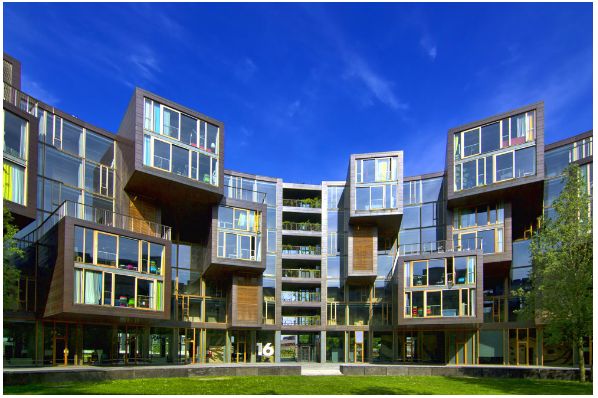I was lucky enough to join the RESI judges panel a few weeks and consider the student developer of the year submissions. There was a fine array of examples on what is a mature and professional market.
Go back fifteen years and the student house building market would be unrecognisable. Significant undersupply was causing real problems across the UK. Many towns and cities were suffering from urban decay as studentification of areas led to depopulation, high levels of noise nuisance, unkempt gardens and fly tipping. Schools and local services closed as student housing digs crowded out local residents. Quality of service was a perennial problem as students were crammed into poor quality bed sits and universities struggled to manage standards.
A renaissance in student house building came about from a recognition by capital markets that student led developments could deliver attractive returns. However, perhaps more importantly, the planning system also responded by recognising and supporting the idea of mono-tenure student led developments. This came about from political necessity – what can local authorities do to halt damaging displacement in established local communities.
Public private partnership has been the hallmark of this change as the sector took root. Now, in 2018/19, the proportion of bed spaces provided by the commercial sector has reached half of the UK’s total stock, up from 39 per cent in 2012/13. A stunning transition which has led to a vibrant array of platforms with different ethoses and an increasing drive towards quality and community.
This year, at least another 29,000 new beds are expected to be delivered increasing the sector’s market value to £53 bn. The ability of professional, student house builder platforms to form sustainable long-term relationships with the university sector has enabled many universities to finally assure their student populations that good quality, secure accommodation is available.
There are lessons here which apply more generally. Whilst student development has gathered pace and has proved resilient in down turns, the wider residential sector struggles. It struggles to deliver both the right quantity and the right tenures for the population. The answer to why can in part be found in how student developers are treated by the planning system.
Student development delivers for a specific cohort and this is enshrined in planning regulation. This thus allows the industry to standardise and provide a rigorous focus on quality – or at least try to.
Meanwhile, the wider development residential development sector struggles to achieve such simplicity. Why – because planning policy details both the unit mix required but also tenure splits leaving little room for providers focusing on particular needs. This is done under the mantra of delivering mixed communities.
Unfortunately, complexity only benefits those with enough resources and time to persevere. By stipulating and prescribing tenures and mix, whole areas of the market are becoming under supplied or caught up in red tape battles. Its one size fits all rules clashing with specific market needs. The result is sectors like retirement living, the institutional private rental sector and innovative housing providers struggling to define themselves.
What’s the answer to this dilemma? In the short run, pragmatism is the only remedy. Pragmatism on the part of local authorities who see their places not in terms of what an individual building might achieve but in terms of how those buildings might enhance the rhythm of a place. On the developer side, a focus on quality and design capable of meeting the needs of their market. Purpose built should mean buildings which meet the very particular requirements of the markets they serve.
In the longer run, perhaps the answer is more specific use classes, to enable developments of different urban forms to flourish. Or another way is to simply remove tenure prescription from the planning system and allow the market to decide.










